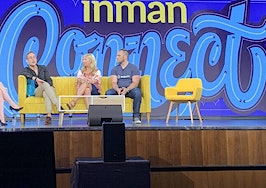Whether you’re new to listing homes or a seasoned, referral-only buyer’s agent, real estate technology continues to change the way the industry operates.
Brokers and agents have to be ready to shift when consumers do, and part of that is knowing what your clients and your technology vendors are talking about.
What follows is an ever-growing list of terms that are marching their way into today’s everyday business vernacular. Some you might know, and others you should get to know.
1. App
No longer used to describe only the software on your phone, it’s now the go-to term for any type of software. Mobile apps are on your phone. Browser and web apps are accessed through Chrome, Firefox, etc., and desktop apps are installed on your computer.
2. API
Application programming interface. It’s often thought of as a “bridge” that connects two software systems, but it also refers to the way web applications are built. Developers use APIs to access data and features of other products to use in their own. Map searches often use the Google Maps API; property search sites may use one of Zillow’s APIs.
3. Back-office
Accounting, financial and legal business operations required of brokers to process and distribute commissions, delegate operating funds and generally keep an office running. Back-office solutions are often a part of transaction management products or sold stand-alone.
4. Back end
The code, databases, applications, linkages and “parts” that power a website or proptech. In the most traditional sense, what software developers create.
5. Companion app
The mobile app version of a desktop or web app. Not to be confused with a mobile-responsive, but rather a mobile app version of the software.
6. Conversion
Turning a lead into a client. Marketing software products, vendor-provided drip campaigns, CRM funnel structures and all forms of paid lead generation systems should be measured largely by conversion rates.
7. CMS
Content management system. The software most often associated with website design and editing. It allows for the input of text, creation and management of pages, insertion of videos, charts, tools, menus, etc. WordPress, Squarespace and Wix are common examples.
8. CRM
Customer relationship management. Actually a business function. The majority of software options marketed under this abbreviation have far outgrown it. It’s used to categorize a simple database of contacts with simple features such as scheduled follow-up reminders, alerts to birthdays and notes on each contact instance.
9. CTA
Call to action. Text, buttons, forms, banners and other interactive features on an advertisement, website, or landing page, designed to encourage a user to take action, such as “How much is your property worth?” or “Subscribe now to find your dream home!”
10. Data visualization
The translation of complex data into palatable visual aids and analyses, such as graphs, charts, color variations and heat maps.
11. eNotes
Electronic promissory notes. A method to ensure ownership of real property using digital verification and electronic documents. DocuSign is a popular vendor facilitating eNotes, as is MERS.
12. Exposure fusion
Increasingly popular technical photography process that combines multiple exposures to control over-exposure and distracting natural light. Often used to reduce glare from windows in interior photos, which allows viewers to see exterior environments.
13. Front-end
The user-facing component of a website or software product; the collective features, buttons and interactive tools of a software product.
14. Funnel
The process of taking a person from prospect to formal client, usually involving a series of interactions that collect an increasing amount of personal information and increased permission to deliver marketing messages. Usually starts with an email newsletter sign-up and ends with formal buyer or listing agreements.
15. HDR
High dynamic range (imaging). In photography and visual displays, a technology that combines multiple, varied exposures simultaneously to improve range of light to dark, improving the physical capabilities of the camera’s native mechanisms. It can greatly improve property pictures. It’s found on many photography apps, but not always needed nor always beneficial.
16. MERS
Mortgage Electronic Registration Systems, Inc. A national database of mortgage ownership that helps create and set standards for eNotes.
17. MERS eRegistry
A product gaining momentum in the e-mortgage sector that securely stores eNotes to prove who owns a mortgage note.
18. MISMO
Mortgage Industry Standards Maintenance Organization. Organization supporting common language and data standards for exchanging information across the mortgage finance industry, primarily to encourage adoption of e-closings.
19. Metadata
Data about data. In real estate, some software providers are technically embedding property images with metadata that describes what’s in the image, such as specific appliances in a kitchen or siding materials on exterior image. Tactically speaking, metadata can increase effectiveness of search results. Time stamps and geotags in Instagram pictures are a form of metadata.
20. Metatags
Umbrella terms used to describe the content of a web page to assist in search accuracy. Often materializing in CMS widgets and SEO plug-ins.
21. Mobile first
User experience design tactic of a web app that prioritizes use on mobile device but isn’t necessarily a mobile app.
22. Mobile responsive
Describes how web apps recognize use in a mobile browsing environment and varying screen sizes, automatically adjusting its features, icons and user interface to the technical parameters of mobile screen.
23. Omnichannel
Comprehensive marketing and sales tactic leveraging “most” common forms of consumer media, such as print (postcards and brochures), web (landing pages, pay per click, banner and display), email marketing, Instagram, Twitter, Facebook, YouTube, etc. Integration of multiple forms of outreach with a similar message.
24. RON
Remote online notarization. Notaries use video technology and legal digital signature to legally authorize closing documents. Sates that have not already authorized are issuing emergency declarations to allow it as the pandemic continues to impact the industry.
25. SEM
Search engine marketing. Often associated with search engine optimization (SEO). SEM refers to tools and tactics used to leverage web search, such as paid advertising, business listings and pay-per-click campaigns.
26. UX
User experience. The overall functionality of a software product as it relates to users’ ability to access features, navigate its content and reach the intended purpose of the product. It incorporates the user’s physical and emotional reaction to the product.
27. UI
User interface or interface design. How the text, colors, iconography, aesthetics and functions access contribute to an app’s UX. How the “look and feel” assists or detract from a person’s use of a product. Does a form pre-populate? Is it easy to save a search? Does a property page show its pertinent data?
View all of Inman’s coronavirus coverage here, and check out all of our content related to running your business here.
Have a technology product you would like to discuss? Email Craig Rowe
Craig C. Rowe started in commercial real estate at the dawn of the dot-com boom, helping an array of commercial real estate companies fortify their online presence and analyze internal software decisions. He now helps agents with technology decisions and marketing through reviewing software and tech for Inman. He’s also a commercial backpacking and adventure travel guide. He lives in Truckee, California, near Lake Tahoe.
After 25 years, Inman Connect is coming to you. We’re transcending our legendary events in a live digital event, Inman Connect Now. Get ready for the top industry leaders plotting the path forward, new business ideas and opportunities, networking like you’ve never imagined it, and tons of exciting new magic, all straight to you. It’s all part of an epic new Inman experience, Connect Now, June 2-4, 2020. Click here to save your seat.







